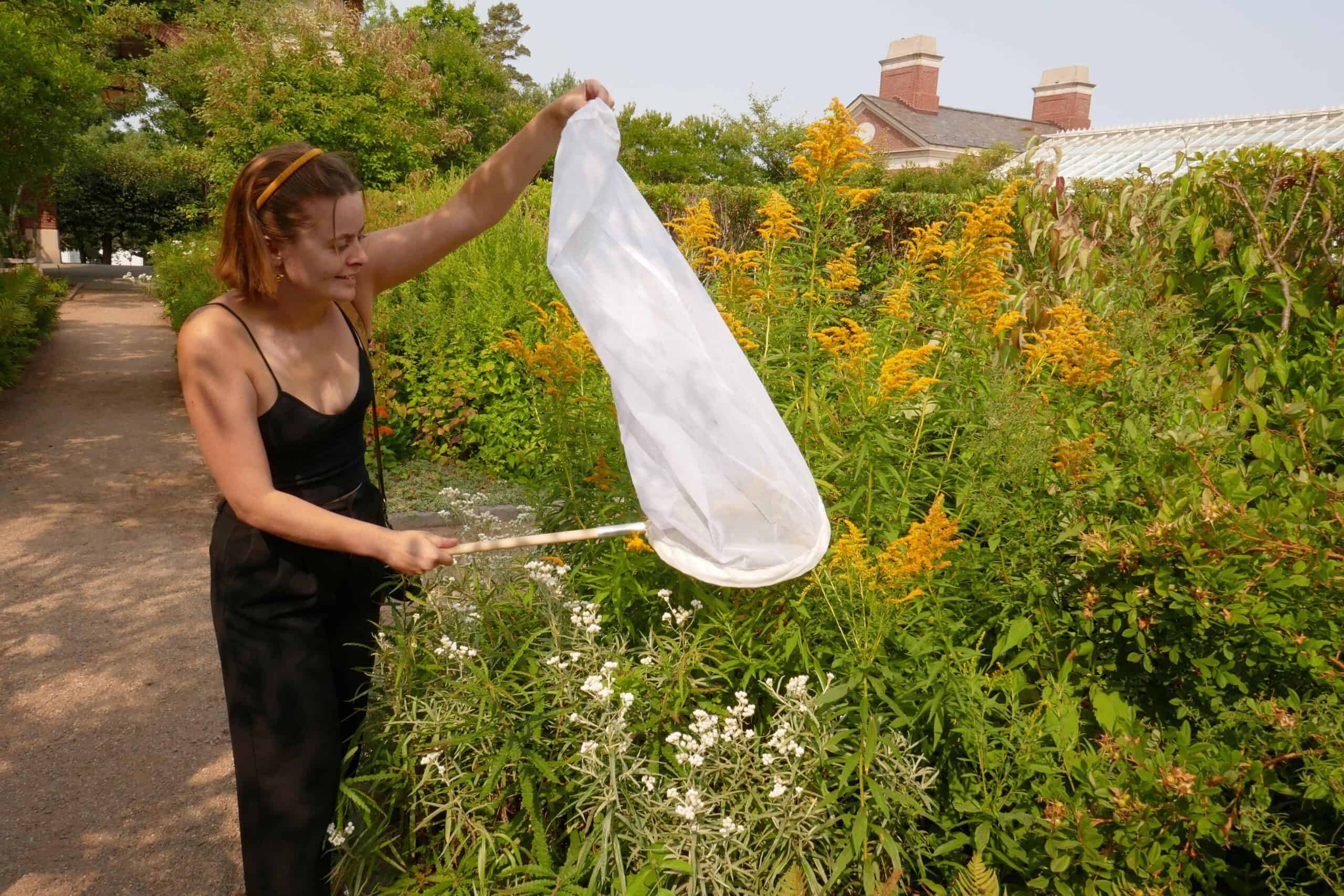
Native Bees of Nova Scotia
Nova Scotia has over 200 species of native bees. We even have a bee that exists in this province and nowhere else in the world. The Sable Island Sweat Bee is a tiny native bee that is endemic to Sable Island and is listed as Threatened under the Species at Risk Act. Native bees are greatly at risk due to a variety of factors including, climate change, habitat loss, pesticide use and the high abundance of introduced European/Western Honey Bees competing for resources.
This summer Acadia Biology student, Abby Danis, spent many days walking through the Harriet Irving Botanical Gardens taking a close look at bees. Abby’s Honours project in Dr. Zoe Panchen’s plant ecology lab involves observing pollinator foraging patterns and preferences on native plants.
Abby, along with fellow Acadia students Jane Vurdela, Amanda Tracy and Tedi Polack worked with Acadia Research Associate Terrell Roulston to lead Native Bee Walks at the Botanical Gardens this summer. These walks highlighted the beauty and diversity of native bees and even allowed participants to temporarily capture bees and hold them safely in their hands.
As a final offering this season, the group is hosting a Native Bee Talk in the Auditorium at the K.C. Irving Environmental Science Centre at Acadia on October 9th from 6:30-8:00pm. Guest speaker Steve Javorek will be sharing his decades of experience as a bee expert and landscape ecologist at Agriculture and Agri-Food Canada’s Kentville Research and Development Center. Other speakers include MSc. candidates Emily McLean (Dalhousie) and Jane Vurdela (Acadia), who will speak on the Sable Island Sweat Bee and the impacts of pesticides on native bees, respectively. All are welcome to this fun and educational talk.
As the season winds down and many of us are putting our gardens to bed, please remember the bees. To support native bees; plant a diversity of native plant species, avoid pesticides, keep fallen leaves on the ground to create habitat, don’t cut down perennial plants as many solitary bees nest and overwinter in the hollow stems. Consider getting involved with local projects such as the Blomidon Naturalists Society Butterfly Way Project.
We’ve had so much fun this summer learning with Acadia staff, students and community members at our monthly Bee Walks. If you haven’t had the opportunity to pick up a copy of our new bee brochure developed by Acadia Research Associate Terrell Roulston you can download a copy here.
Learning about the amazing diversity of native bees is a great step towards helping support declining bee populations.


 Acadia University
Acadia University